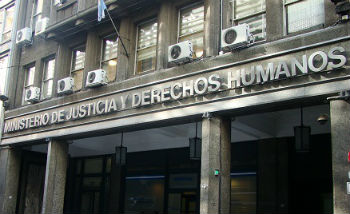Argentina’s national government is scaling up a pilot project that provides treatment instead of incarceration for drug addicts accused of minor crimes, an initiative that could contribute to lower rates of recidivism and prison overcrowding.
Argentina’s Ministry of Justice and Human Rights is preparing to implement nationwide what are known as Drug Treatment Tribunals (Tribunales de Tratamiento de Drogas – TTD), reported La Nación. The authorities hope this plan will reduce the rate of recidivism in Argentina, which is reportedly close to 50 percent.
The move expands the TTD model, which was first implemented as a pilot program in the northwestern province of Salta in October 2013. Under the program, drug addicts accused of minor or non-violent crimes can request that their trial be suspended in order to undergo treatment. If the rehabilitation program is considered successful, the criminal activity is expunged from the suspect’s record.
Officials say the pilot programs in Salta have led to decreases in crime and recidivism rates.
TTD trainings, organized by the Ministry of Justice and the Secretariat for Integrative Drug Policies (Secretaría de Políticas Integrales sobre Drogas – SEDRONAR), are expected to take place during the coming weeks in several parts of the country, according to La Nación.
InSight Crime Analysis
The expansion of the TTD program could have a significant impact on how justice is administered in Argentina. According to data from the Argentine non-governmental organization Intercambios, drug convictions rose by over 100 percent between 2002 and 2013, and are now the third most common offense among prisoners after theft and homicide. The increase is especially notable in the province of Buenos Aires, where the number of drug offenders serving prison time rose from eight in 2002 to 2,432 in 2013.
Drug tribunals could also reduce overcrowding in Argentina’s prisons. With an occupancy rate of 103 percent, the country’s jails are operating at slightly above maximum capacity. This figure is actually much lower than the overcrowding rates in many other Latin American countries, where prison populations routinely far exceed the official limit. But as with drug offenses, the problem in Argentina is especially acute in Buenos Aires; the province’s prisons have just 28,000 beds for over 35,000 inmates.
SEE ALSO: InDepth Coverage of Prisons
While the prospect of more drug tribunals may appear promising, implementation could prove difficult. Some officials say the general population is likely to be resistant to these types of legal changes.
“The great political difficulty is how we translate this technical design to reality, to communicate [with] the citizenry, who it would appear is asking for something else,” said Santiago Otamendi, a high-ranking judicial official, during a recent seminar on TTDs. “It is difficult to talk about alternatives to incarceration at the moment.”

